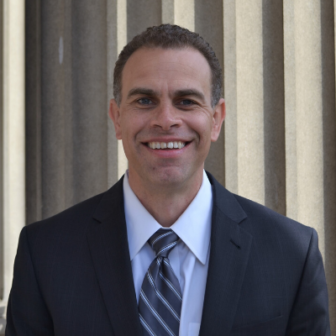As the U.S. begins to rebuild from the devastating COVID-19 pandemic, the Biden administration has signaled that it intends to seize the opportunity to reinvest in areas that have long been neglected by American leadership. President Biden’s three-part Build Back Better agenda includes critical economic relief for businesses and families, and bold investment in our nation’s physical and social infrastructure.
The agenda, particularly the expanded child tax credit, takes a big step by aiming to cut child poverty in half. It also includes significant provisions to expand early childhood education and provide two years of tuition-free community college.  Efforts like these can begin to help balance the scales of opportunity and address the deeply rooted economic and racial disparities in our education system.
Efforts like these can begin to help balance the scales of opportunity and address the deeply rooted economic and racial disparities in our education system.
But to “build back better,” we need more direct support for one of our most underserved populations: Black and brown youth. To create positive, lasting change, we should consider the effects of universal basic income and robust mentorship as transformative tools to help even playing fields and unlock untapped potential.
America is the richest nation on Earth, and yet it ranks near the bottom of advanced nations when it comes to child wellness. One in five youth live in poverty in America and Black and brown youth represent nearly three-quarters of children in poverty.
Not unexpectedly, children in poverty have struggled tremendously during the pandemic. The pandemic has exacerbated poverty and hunger, and among Washington D.C.’s most at-risk students, graduation rates tended to be below city average and postsecondary enrollment rates have fallen. It will take much more to truly level the playing field so that Black and brown youth have an equal shot at economic mobility coming out of this pandemic.

Khari Brown is the Chief Executive Officer of Capital Partners for Education (CPE), a 28-year-old nonprofit organization that mentors low-income high school and college students from the Washington, D.C. area.
A universal basic income (UBI) would provide every adult with a set amount of money on a regular basis. UBI could be effective as an anti-poverty program as demonstrated through pilot programs, like in Stockton, California. A recent report on Stockton’s program that gave $500 per month to 125 families showed drastic increases in recipients’ financial stability, job prospects, and overall well-being.
Early results from a guaranteed income pilot program in Jackson, Mississippi targeted toward Black mothers, shows similar positive results. Guaranteed income programs can help fill in gaps in our social safety net and create more space for people to focus on academic and professional goals when there is less worry about having their basic needs met.
Similarly, mentorship can have tremendous, long-term benefits for young people. In a world that too often neglects and devalues Black and brown youth the support of a strong mentor who sees and respects their intrinsic value can be life-changing. According to MENTOR: The National Mentoring Partnership, young adults with a mentor are 55% more likely to enroll in college and 130% more likely to hold leadership positions in their careers.
Mentorship also carries the ability to inspire through representation. By seeing examples of success from people who look like them or who come from similar backgrounds, mentorship can instill confidence in our youth and help them imagine beyond their wildest dreams. This extra individualized attention from caring adults is urgent now following 16 months of social isolation and learning loss brought on by distance learning.
What I hear often from youth we support at Capital Partners for Education (CPE), a Washington, D.C.-based nonprofit that supports low-income students with mentorship and college and career preparation, is about the need for connection and for financial resources to help their families.
CPE student Maxine was enjoying her college experience until the pandemic hit. Her mother lost her job in wedding dress alterations, and struggled to pay for rent and Maxine’s on-campus housing.
Although Maxine’s mother has regained some clients, it is still difficult for them to make ends meet. Maxine worries about their financial stability, but her goal is to graduate from college and build a career in psychology. Since the pandemic began, CPE has provided more than $200K in emergency financial relief to students like Maxine, because the greatest challenges students face are often financial.
Cutting poverty in half would be a tremendous accomplishment, and is something the Biden Administration should be applauded for working toward. But that can’t be the end—that just gets young people of color back into the starting blocks.
Through public policies, including guaranteed income programs, and personal initiatives, like mentorship, we can make true economic advancement for young people a reality again.
Khari Brown is the Chief Executive Officer of Capital Partners for Education (CPE), a 28-year-old nonprofit organization that mentors low-income high school and college students from the Washington, D.C. area.






























